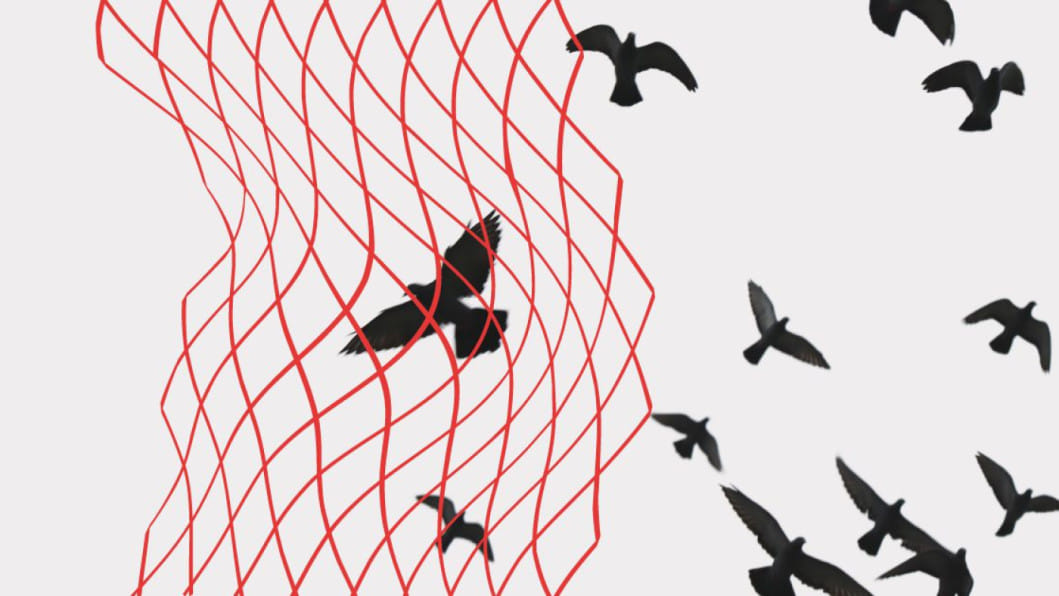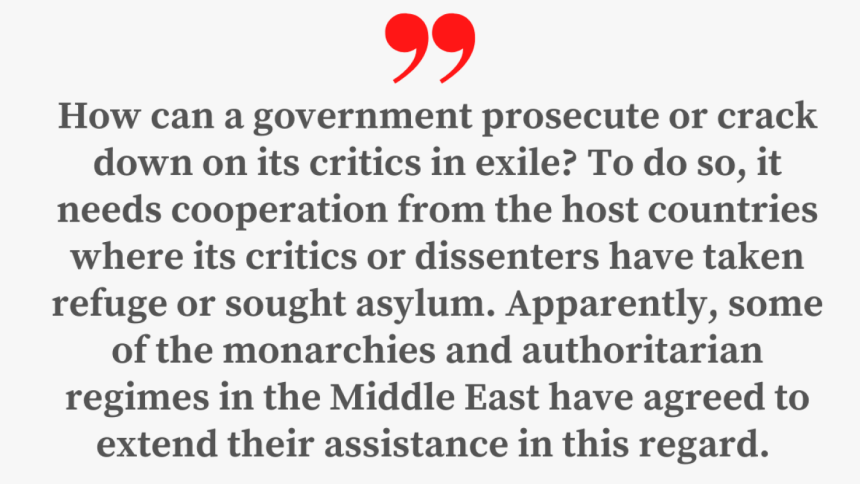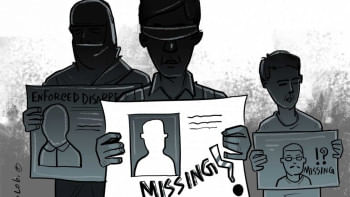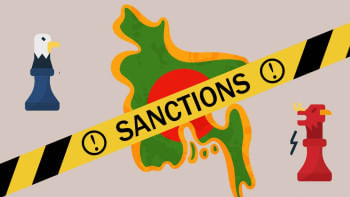Why sleepwalk into more sanctions?

Our foreign ministry, reportedly, has informed a parliamentary standing body that Bangladeshi expatriates involved in "anti-government activities" abroad will be brought under law. One report published in this newspaper on October 28, titled "Expats involved in anti-govt activities to face music," noted that the report submitted to the committee by the ministry officials said, "Sadly, besides playing a positive role in protecting the interests of Bangladesh and sending remittances, many of the expats are engaged in propaganda against Bangladesh and the government. The government is working to bring those who are engaged in anti-government activities and giving provocative and completely fabricated statements to book."
Apparently, it may sound like a patriotic duty of the government to counter anti-Bangladesh propaganda. However, the word "anti-government" in the statement clearly implies that it has nothing to do with patriotism, but to silence critics of the government. And the efforts or actions would be taken beyond its own territorial boundary, thereby outside its sovereign jurisdiction.
How can a government prosecute or crack down on its critics in exile? To do so, it needs cooperation from the host countries where its critics or dissenters have taken refuge or sought asylum. Apparently, some of the monarchies and authoritarian regimes in the Middle East have agreed to extend their assistance in this regard. Most of the vocal critics and political activists of our government, however, have settled in Western democracies. The so-called anti-government propaganda that comes out from Middle Eastern countries are mostly comments or items shared on social media platforms by expatriate workers who are usually unaware of any consequences of their actions, and are not part of any organised campaign.
Other methods that authoritarian regimes use to reach their political opponents abroad include harassment of and intimidation to family members left behind. In the past, there have been reports of state-sponsored assassinations of opponents abroad against former Libyan leader Muammar Gaddafi, Iranian regime and the Russian spy agency. One of the most sensational killings was of the Russian defector Alexander Litvinenko, in England in 2006. The 2018 assassination of Saudi journalist Jamal Khashoggi in Istanbul at the Saudi consulate was another chilling example of such overreach of an authoritarian regime. Besides, a US agency known as the Helsinki Commission has identified what it says is the politically motivated abuse of the Interpol by autocratic states, who wish to harass and detain their opponents overseas, often in the hopes of trying them on bogus criminal charges.
Human rights groups describe this strategy opted by authoritarian regimes as transnational repression. Freedom House, a non-profit organisation that works "as an independent watchdog organisation dedicated to the expansion of freedom and democracy around the world," says transnational repression is no longer an exceptional tool, but a normal practice for dozens of countries that seek to control their citizens abroad. It has started listing incidents of such repression around the world and produced two reports: one in 2021 titled "Out of sight, not out of reach," and the other titled "Defending democracy in exile" in June this year. The first report compiled 608 incidents of such direct cross-border authoritarian attacks since 2014 involving 32 countries – detentions, assaults, physical intimidation, unlawful deportations, renditions and suspected assassinations. The latest report contains 735 cases where attacks originated from 36 countries and they are spread through 84 countries.

Freedom House lists these attacks in four categories: direct attacks, long distance threats, mobility controls, and co-opting other countries. Direct attacks include assassination, assault, intimidation, abductions or unexplained disappearances and renditions. Family intimidation, digital threat and spywares are marked as long distance attacks, and passport revocation, denial of consular service, including issuing or renewing passports, and reporting passports as lost or stolen in order to detain individuals in transit are identified as mobility controls. Co-opting other countries involves deportation, detention, rendition, and abuse of the Interpol's "red alert notice" mechanism.
Rights groups, as well as politicians in some Western countries including the United States, Britain and Sweden, have already taken some measures to ensure safety and security of dissidents who fled persecutions for dissent. In the US, the FBI now publicises transnational repression as a crime. Its definition says, "When foreign governments stalk, intimidate or assault people in the United States, it is considered transnational repression. It is illegal, and you can get help to stop it." It further adds that some countries' governments harass and intimidate their own citizens living in the US. These governments may also target naturalised or US-born citizens who have family overseas or other foreign connections, which violates US laws and individual rights and freedoms. The FBI lists political and human rights activists, dissidents, journalists, political opponents, and religious or ethnic minority groups as likely targets of such repression.
In recent years, the US government imposed targeted sanctions against some foreign officials it thought responsible for such illegal acts. Chinese and Iranians dominate its sanctions list. Freedom House has called for holding perpetrators accountable for transnational repression, increasing resilience within democracies, and better protecting vulnerable individuals and groups.
Our government's approach seems seriously misguided and likely to harm its image even more. It must be understood that in a democracy, citizens within and outside the country are entitled to express their opinions freely, though such opinions may not be palatable for the government of the day. But threatening them or attempting to silence the dissent is simply counterproductive. Here's hoping good conscience will prevail and policymakers will shun sleepwalking into any more sanctions.
Kamal Ahmed is an independent journalist. His Twitter handle is @ahmedka1

 For all latest news, follow The Daily Star's Google News channel.
For all latest news, follow The Daily Star's Google News channel. 






Comments